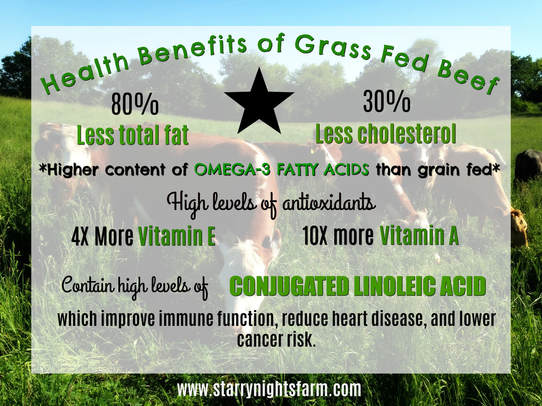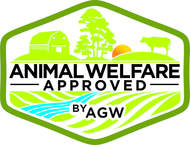|
Last week we went to Central High School in Kenosha County to present to a Freshmen AP Geography class about Sustainable, Organic, and Regenerative Agriculture. It was super fun for Paul and I to talk to kids, who are the future of this country, about what is possible with Regenerative Ag. Something that is catching on in mainstream as a better, healthier way to farm for the environment and for our health.
After introducing ourselves and talking about who we are and what we do, we gave a background about the history of modern/industrial agriculture. Starting with "Old MacDonald", who use to do everything and integrated plants, crops, and a variety of animals, to industrialization bringing machinery, pesticides and fertilizers, specialization and "getting bigger" for efficiency. These were all things that were welcome by overworked farmers and actually did improve the lives and work of farmers at the time. However, nobody was able to foresee the consequences of these. Today, we know what these are- for our health and for the environment. Read about these in slides #16-#17. We then talked about what Organic farming, Animal Welfare, and additional certifications we pursued, given that organic standards have gotten relaxed (especially when it comes to animal welfare) once Big Ag got into it. Lastly, we talked about Regenerative Agriculture as a system of principles and practices that is not only "sustainable" but actually increases biodiversity, enriches soils, improves watersheds, and enhances ecosystem services. We talked about the importance of SOIL health. It ALL starts with healthy soil, something I found interesting and contrasting coming from a nutrition world when Hippocrates said "all disease begins in the gut". in human health, we have discovered most disease starts with an unhealthy gut. Similarly, we are now realizing, a healthy environment, and healthy food, starts with healthy soil. We explained the differences of grass fed vs. grain fed cows for beef and dairy. There are numerous health benefits of grass fed beef vs. grain fed, which includes less saturated and overall fat and more of the good fats like Omega 3s and CLA's in grass fed beef and dairy. We touched on the economics of farming, a sad reality of our broken food system that pays more for cheap, processed, and industrialized food than it does for "real food". It is more profitable for many farmers to grow commodity crops like soy and corn, sell them to the market where they get processed into your packaged food, and sold for very cheap at the store- than it is to grow healthier vegetables or pastured animals. Lastly, we provided a number of resources of local and some national organizations that have a wealth of information on these topics, and also some interesting books and documentaries we thought the kids (or anybody!) might like. At the end, we took in questions... with many very thoughtful and interesting questions coming from the kids. We welcome questions from you too! Please leave a comment, emil us, or contact us if you have any questions about anything you read in the presentation, what we do, or anything you'd like to ask us! We are happy to answer as best we can! Thanks for reading, and stay tuned for some more "educational" posts coming in the next few months.
0 Comments
Last week a friend of ours reached out to us for beef. He has been very supportive of our farm business, but had never bought any of our meats. He had a “mild” heart attack and open-heart surgery some years ago and decided then to “go off beef” as much as possible . Whenever we get together with him we are always super sensitive to his disciplined eating routine of “no fat” and “no cholesterol”.
As you can imagine, it came as quite a surprise when he said he needed to buy some of our beef. His doctor told him he has too low cholesterol (yes, it's a thing!) and some anemia, and he recommended he started eating more beef. The good news was the doctor was clear in specifying - not just ANY beef, but GRASS FED beef! As we grow our farm business, we are encouraged to see the health benefits of pasture-raised animals become more mainstream. Mayo clinic says, Grass-fed beef may have some heart-health benefits that other types of beef don't have. When compared with other types of beef, grass-fed beef may have:
One of the first proponents of pasture base meats, Dr. Mercola, says, Conventionally raised beef can’t begin to compare with lifetime grazed 100% grass fed beef for health benefits. Here are just some of the ways grass fed beef is superior:
CLA has been shown in studies to provide important support for weight management, immune function, normal cell growth and normal blood sugar levels. Animals that graze on pasture have 300 to 400 percent more CLA than those fattened on grain in a feedlot. Once a cow begins to eat grains, it loses its ability to produce this valuable fat. Just one more compelling reason to choose grass fed! It really makes us feel good at Starry Nights Farm when we promote better health, it is part of our mission to deliver a delicious, healthy, and nutritious product to our customers. So have your cake and eat it too! |
AuthorMarisa usually writes about nutrition, grass fed beef, organic agriculture, as well as sharing delicious recipes; Paul writes about farm work- sharing his stories and experiences, and most times... we both collaborate on the stories! Archives
March 2024
Categories
All
|

 RSS Feed
RSS Feed


